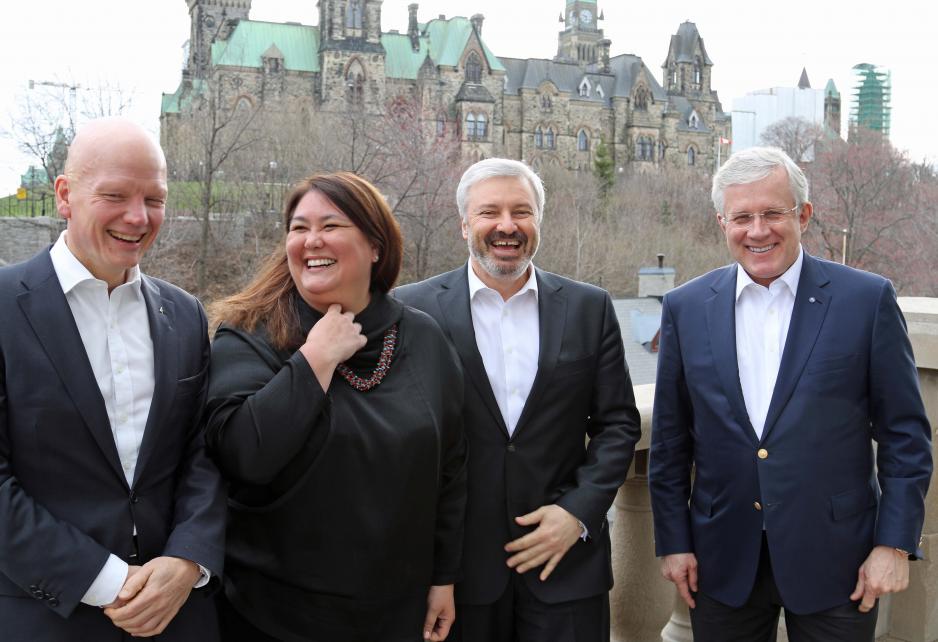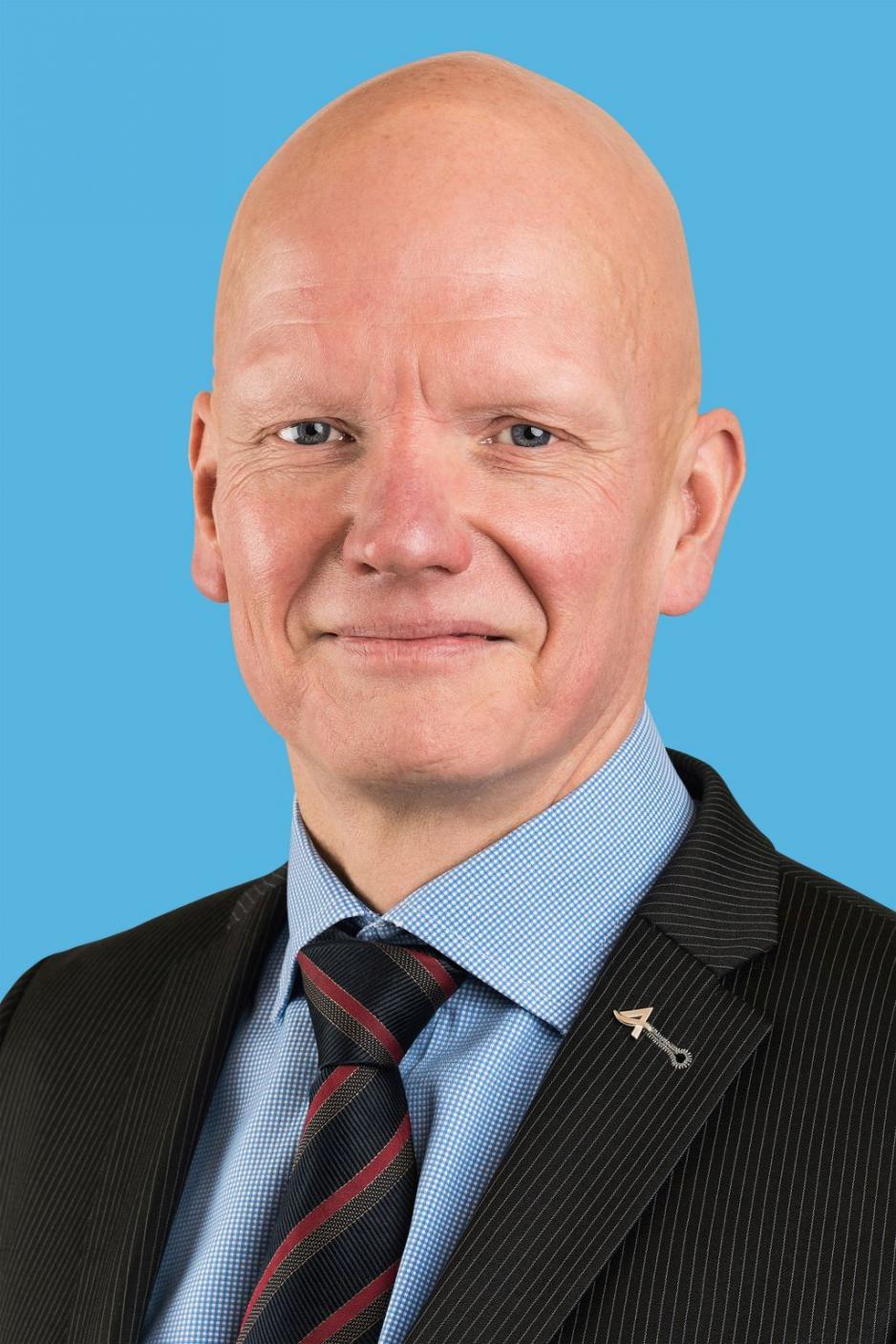AEC to Keep Steady Course with Ambitious Vauraste

The leaders of the AEC photographed during the meeting in Ottawa, Canada, in April 2015. From the left: Tero Vauraste (Arctica Ltd.), Tara Sweeney (Arctic Slope), Tom Paddon (Baffinland), Evgeniy Ambrosov (Soccomflot). (Photo: Arne O. Holm).
In May, when Finnish Tero Vauraste takes over as Chair of the Arctic Economic Council (AEC) after American Tara Sweeney, he has no immediate plans about changing the course of the organization.
Vauraste has helped stake out the current course as Vice Chair and a vocal representative of Finnish business, along with Sweeney and the other members of the leadership.
"We want to continue working on our five overarching themes. These are so important that changing strategies does not make any sense," the Finn says.
The AEC has consciously tried to avoid the problems that have marred the Arctic Council, he adds, where the overall strategies change more or less each time the Chairmanship is transferred to the next country in line.
Encourage more partnerships
The areas of priority which he refers to, focus on everything from establishing strong market connections between businesses already active in and those interested in the Arctic, to encouraging more partnerships between the public and the private sector, in particular in questions related to infrastructure investments.
"I will also continue encouraging the work of the four AEC Working Groups that are already established," Vauraste says.
AEC’s members represent a wide range of businesses operating in the Arctic – from mining and shipping companies to reindeer herding and indigenous economic development corporations.
"We have many smaller and larger Arctic-based companies that operate internationally and one of our tasks is to market Arctic businesses on a global scale," AEC Vice Chair Tero Vauraste says to High North News.
Wants an "Arctic Business Code"
Approximately four million people live in the High North today, with the precise number depending on where the boundary is drawn.
International trade and free trade holds significant importance for the region, and it is also crucial to uphold and work for even more sustainable business, the Vice Chair says. That, he adds, will not be any less important when more businesses from outside the Arctic join the organization. The Finn also wants to develop an Arctic Code of Business Ethics, which he promoted warmly when visiting St. Petersburg State University in Russia last year.
In his day job, Tero Vauraste is President and CEO of the Finnish Arctia Ltd., which owns and operates a fleet of eight icebreakers at present. The AEC, which was established in September 2014, has no long history to boast. However, the organization has made an enormous progress since its inception, according to the current Chairman of the Board Tara Sweeney.
A few weeks ago, the AEC launched its report "Arctic Broadband – Recommendations for an Interconnected Arctic" in Tromsø, Norway.
Supporting sustainable business
"How do you think the Arctic Economic Council fares so far?"
"We must keep in mind that the AEC has been the baby of both us and the Arctic Council, and its secretariat has only existed for just over a year. A lot of volunteer work has been done since its inception to make this work. I would have loved to see even better results, however, I think we have managed to do a lot when the short period of track history is taken into account," Vauraste says, before referring to the broadband report previously mentioned. It is the first report published by the AEC.
"I am very happy about it, and the report is a great example of some of the results we can show for ourselves".
When asked if he has any thoughts regarding the American changing of presidents, he points out the potential issue of the Trump administration – at least according to the media – easing up for oil and gas exploration in the Chukchi and Beaufort Sea off the Alaskan coast. When the Obama administration published its five-year plan last November, president Obama put a ban on drilling in these American Arctic areas.
"However, should the Trump administration decide to reverse this decision, it may nevertheless take several years," Vauraste comments.
He believes that renewable energy, for instance offshore wind energy, will become increasingly popular in the Arctic part of the world.
"It is surprising to see how large CO2 emissions we have in the atmosphere, despite the ongoing global work to reduce these emissions. That is worrying, both considering our children and our grandchildren."
Read also:
Broadband Report: The Arctic in Danger of Being Left Behind
Important Breakthrough for the Arctic Economic Council

Facts:
The Arctic Economic Council is a business forum established to facilitate Arctic business-to-business activities, promote responsible economic development and provide a circumpolar business perspective to the work of the Arctic Council. The inaugural meeting was held in September 2014 in Iqaluit, Nunavut, Canada.
